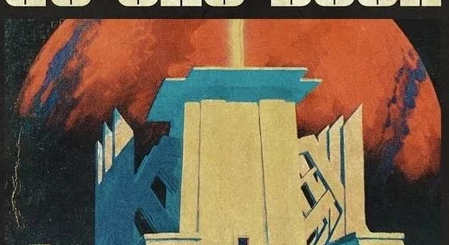Meet Me In The Bathroom by The Strokes Lyrics Meaning – Deciphering the Echoes of Faded Infatuation
- Music Video
- Lyrics
-
Song Meaning
- The Vows of Youth: Examining Promises in the Context of Nostalgia
- Temporal Crossroads: ‘Never was on time, Yes, I once was mine’
- From Lust to Nothingness: ‘And baby, that just don’t mean much’
- Unraveling the Hidden Meaning: Who’s in Control?
- Memorable Lines and the Ties That Bind: ‘My uncle would say, Things would change once he’s dead’
Lyrics
They mean promises
They’d say, that’s okay
Long as we can celebrate
Ooh, you see, my uncle would say
Things would change when he’s dead
Meet me in the bathroom
That’s what she said
I don’t mind
It’s true
Hey
Never was on time
Yes, I once was mine
Well, that was long ago
And darling, I don’t mind
Yeah, we were just two friends in lust
And baby, that just don’t mean much
Oh yeah, you trained me not to love
After you showed me what it was
Now she’s staring wide-eyed
Can’t close her eyes
Say what?
Anywhere is fine
Just don’t waste my time
Ah, you see, my uncle would say
Things would change once he’s dead
Meet me in the bathroom
That’s what she said
I don’t mind
It’s true
Never was on time
Yes, I once was mine
Well, that was long ago
And darling, I don’t mind
Yeah, they were just two fucks in lust
Oh baby, that just don’t mean much
Oh yeah, you trained me not to love
After you taught me what it was
The Strokes, with their garage rock quintessence, have a way of curating soundtracks for the restless youth, crafting lyrics that resonate through the smoky haze of half-packed clubs and the neon-lit streets of downtown disillusionment. ‘Meet Me In The Bathroom’, a track from their revered sophomore effort, ‘Room on Fire’, remains a compelling study in the fleeting yet intense connections that define a generation in search of something beyond the superficial.
While on its surface, the song may appear to be a simple narrative of two lovers in a clandestine rendezvous, a deeper sonic excavation reveals layers of meaning that speak to themes of lost time, changing relationships, and the coping mechanisms we employ to exist within the emotional aftermath of what once burned bright.
The Vows of Youth: Examining Promises in the Context of Nostalgia
The word ‘promises’ recurs as a motif throughout the song, serving as a touchstone for the naiveté and earnestness that characterizes young love. The idea that promises mean exactly that—commitments meant to be kept—is juxtaposed with the tale of a fleeting encounter and the knowledge that with time, such commitments often fall away. The Strokes play with this irony, reflecting on the simplicity of youthful assurance and its eventual disintegration.
It’s this juxtaposition that lends the track an air of wistful reflection. The promise of what could be or might have been hangs over the narrative, making listeners ponder their own ‘promises’ and the burden of time’s passage on their fulfillment.
Temporal Crossroads: ‘Never was on time, Yes, I once was mine’
The Strokes don’t just sing about the literal sense of punctuality; ‘never was on time’ is a mournful admission of personal and emotional misalignment. The speaker acknowledges a once unblemished sense of self that has been eroded over time—“Yes, I once was mine”—speaking to a universal experience of aging and the loss of the autonomy we once imagined we had over our own futures.
These lines conjure up sentiments of retrospection, hinting at a narrator who’s found themselves out of step with a timeline they once followed or controlled. It encapsulates a pivotal moment where youth begins to dull, and the relentless forward march of time is felt most acutely.
From Lust to Nothingness: ‘And baby, that just don’t mean much’
The dismissal of physical connection as something that ‘just don’t mean much’ reflects the often transient nature of desires. The Strokes tap into the sexual apathy that can arise from mistaking lust for love, acknowledging how physically intimate moments can be hollow — devoid of the deeper connection necessary for enduring significance.
This lyric uncovers the heart of a relationship based on physicality without emotional investment. The transition from potential to insignificance is a stark reflection on how quickly infatuation can turn to indifference.
Unraveling the Hidden Meaning: Who’s in Control?
At its core, ‘Meet Me In The Bathroom’ is a power play, an intimate tango where the invitation to a secret encounter implies a relinquishing of control. But who truly holds the reins? The lyrics suggest a push and pull—a character trained ‘not to love’ even as they’re shown ‘what it was’. It symbolizes the struggle between what we inherently crave and the defenses we build to protect ourselves from potential heartbreak.
As much as it is a song about relationships, the hidden meaning alludes to the inherent power dynamics present in our connections with others, and how they are often shaped, sadly, by the anticipation of their eventual end.
Memorable Lines and the Ties That Bind: ‘My uncle would say, Things would change once he’s dead’
One line stands out for its odd specificity: the uncle’s prescient words. This cryptic line could be interpreted as an acknowledgment of the inevitability of change and the pivotal life events that signal new chapters. Its repetition hints at a looming transformation, tethered to the mortality and legacy of a family member.
The line becomes a haunting reflection, rooting the song’s themes of love and loss within a broader context of family and the generational shifts that impact our understanding of relationships. It’s a line that echoes long after the music subsides, inviting listeners to discern the subtler complexities woven into the fabric of the seemingly straightforward song.








